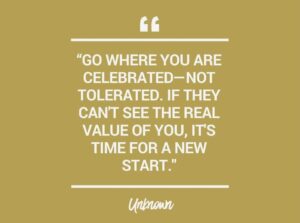《自律養生實踐家之旅380》 動機的雜質

進入職場,你為了什麼而工作?是為了錢、為了磨練、為了學習,還是單純因為「必須要有一份工作」?
如果「為錢工作」成了你從頭到尾的唯一目的,你將永遠失去真正的快樂。這不僅是我在職場幾十年的體悟,也是我在養生領域鑽研多年的發現。
為錢工作與健康有什麼關聯?這其實是現代人失去健康比例極高的盲區。多數人的內心動機,早已被「不得已」與「沒辦法」佔據。
我曾在新冠疫苗接種後進行動機訪談,結論就是任人擺布的外在動機,對應內在的徬徨和恐懼。
我無法想像一家企業的所有員工都只是為錢工作,那樣的公司,註定無法長久。
為錢工作的人,最終不會快樂。因為那背後牽動的是「不足」與「慾望」交織的複雜人性,當慾念與恐懼相遇,結果只會是煩惱與不安。
錢是生活的工具,不是生命的目的。
有位朋友開餐廳,就在我過去服務的公司附近,我們常去光顧,也介紹許多客戶前往,甚至公司尾牙也曾在那裡舉辦。
某次聚餐,一位同事開玩笑建議老闆應該要讓我們入股或抽成,如果這句玩笑話後來成了事實,從那之後,我們每次走進餐廳,吃飯的動機便多了幾分雜質。
我在「動機」的世界裡琢磨多年,最終在幾本重要書籍與生命經驗的引導下,為動機得出一個最完美的詮釋:「行為本身所帶來的內在滿足」,內在是出發,滿足是結果。
人際互動的每一個走向,其實都由動機牽引。搞錯動機,是人類的常態。若要知道動機是否錯了,只需看事情的結局。
為錢而工作的結果,通常以糾紛收場;而為志業而工作的結果,得以邁向成就和圓滿。
工作當然需要收入,但若「付錢者」與「收錢者」的頻率能對齊,彼此都以尊重與誠意為前提,事情便能圓滿。一旦有人貪求不該貪的,或以投機心態處事,結果註定不會歡喜。
我在動機的研究裡,看見了疾病的真相,最可怕的部分,不在身體,而在無法修補的動機裂縫。
你一定聽過「搶業績」的故事。無論在直銷還是保險業,只要有「大客戶」或「大老鷹」出現,衝突與嫉妒就會浮現。
那是一種以金錢為中心的動機競賽,當人們的焦點被「得失」吞噬,人性最單純的部分也就瓦解了。
我曾認識一位為家計奔波的大姐,從直銷轉入私募基金,幾乎一生都在為錢打拚。最終,她因癌症過世。
這只是個案嗎?不。這樣的劇本不斷重演,那些為了賺錢犧牲睡眠的人,那些同時兼三份工作的人,那些躺在病床上仍為金錢憂心的人,皆是相同的命運縮影。
職涯顧問艾希莉・史塔爾(Ashley Stahl)曾說:「我以為金錢能給我安全感,卻發現我得用健全的心智去交換它。就在那一刻,我確定內心的平靜與命運的尊嚴太過珍貴,我不願拿去交換。」
金錢即使重要,若與內心平靜相比,仍顯得微不足道。
史塔爾的著作《別做熱愛的事,要做真實的自己》揭示了另一層真理:「熱愛的事」固然吸引人,但並不一定能反映出你真正想成為的人。
順序若顛倒,人生就偏離軌道,必先與自己同在,再去做你熱愛的事。
這正是我多年職場觀察與養生實踐後的結論,每當我重新排列生命的價值順序,健康總位居最上層的位置。
《動機:單純的力量》這本書給了我極大的啟發:我不該一輩子為錢做事,而該為價值、為真實、為身心的完整而活。
從那一刻起,我重整了所有記憶中的劇本。幾乎每一次的不愉快,都與金錢的介入有關;幾乎每一次的誤會,都源於缺乏真實的內在動機。
人生短暫,我們卻常將大半光陰耗在動機的糾纏中,少了愛、少了體諒、少了同理,形成理所當然的疲憊。
當「不足」與「匱乏」滲入動機的形成,眼神便失去了光澤,行為也不再自然。
我們誤解了上蒼的善意,其實,我們從未缺少什麼;我們本已具足。
健康是自然的法則,不健康,只是不符合法則的動機所造成的誤解。
(去到那些欣賞你的地方,而不是僅僅容忍你的地方。如果他們看不見你的真正價值,那就該是重新開始的時候了。)
The Impurities of Motivation
When you step into the workplace, what are you really working for?
Is it for money, for growth, for learning — or simply because you “must have a job”?
If “working for money” becomes your sole purpose from beginning to end,
you will forever lose the experience of true happiness.
This is not only a realization drawn from decades in the professional world,
but also a discovery I made through years of study in the field of health and self-cultivation.
What does working for money have to do with health?
In truth, it is one of the biggest blind spots behind the modern epidemic of ill health.
Most people’s motivations have long been occupied by “I have no choice” or “I can’t help it.”
When I conducted interviews about motivation after the COVID-19 vaccine rollout,
the conclusion was clear:
external motivations — those shaped by pressure and manipulation — always correspond to inner confusion and fear.
I cannot imagine a company where every employee works only for money;
such a company is doomed to fail.
People who work only for money will never be truly happy,
because beneath that drive lies the tangled human interplay of lack and desire.
When greed meets fear, the result can only be anxiety and unrest.
Money is a tool for living — not the purpose of life.
—
A friend of mine owns a restaurant near the company where I used to work.
We often dined there, recommended it to clients,
and even held our company’s annual party in that place.
One evening during a group dinner,
a colleague jokingly told the owner that he should let us buy shares or earn commissions.
If that joke had actually come true,
then every time we stepped into the restaurant afterward,
our motivation for eating there would have carried a trace of impurity.
I’ve spent many years contemplating motivation,
and through a combination of meaningful books and life experience,
I arrived at what I consider the most complete definition:
> “Motivation is the inner satisfaction that arises from the act itself.”
The inner is the origin; the satisfaction is the result.
Every path of human interaction is guided by motivation.
To misunderstand motivation is a human norm.
If you wish to know whether your motivation is mistaken —
simply look at the outcome.
When one works for money, the ending often comes with conflict.
When one works for purpose or calling, the result is fulfillment and wholeness.
Work, of course, must bring income.
But when the frequencies of the one who pays and the one who receives are aligned —
both grounded in respect and sincerity —
things naturally reach completion.
The moment either side becomes greedy or acts opportunistically,
the outcome can never be joyful.
Through studying motivation,
I came to see the real face of disease.
The most frightening part of illness lies not in the body,
but in the unhealed fracture of human motivation.
—
You’ve probably heard stories of people stealing clients or competing for sales.
Whether in multi-level marketing or insurance,
the moment a “big client” or “top performer” appears,
conflict and jealousy arise.
It’s a competition driven purely by money —
a war of motives centered on gain and loss.
And when people’s focus is consumed by the obsession with winning or losing,
the purest part of their humanity disintegrates.
I once knew a woman who carried the financial burden of her entire family.
She moved from network marketing into private equity investment —
a lifetime of chasing money.
Eventually, she died of cancer.
Was that merely an isolated case?
No. I’ve seen this pattern repeat endlessly:
those who sacrifice sleep for profit,
those who juggle three jobs to make ends meet,
those who lie in hospital beds still worrying about money.
They all share the same tragic outline —
different faces of the same fate.
Career consultant Ashley Stahl once said:
> “I thought money would give me security,
but I realized I had to trade my mental well-being to get it.
In that moment, I knew — my inner peace and the dignity of my destiny were far too precious to exchange.”
Money, though important,
becomes insignificant when measured against peace of mind.
—
Stahl’s book Don’t Do What You Love, Do Who You Are reveals another layer of truth:
what you love may attract you,
but it doesn’t always reflect who you truly wish to become.
When the sequence is reversed, life goes off course.
You must first be with yourself —
then do what you love.
This has been the conclusion of my decades of observation and practice:
whenever I reorder the hierarchy of life’s values,
health always belongs at the top.
The book Drive: The Surprising Truth About What Motivates Us deeply inspired me.
It reminded me that I should not spend my life working for money,
but rather for value, for truth, and for wholeness of body and mind.
From that moment, I began rewriting all the scripts stored in my memory.
Almost every unpleasant event in life was somehow linked to money;
almost every misunderstanding, rooted in distorted or insincere motivation.
Life is short,
yet we spend most of it entangled in misguided motives —
missing love, empathy, and understanding —
until fatigue feels inevitable.
When lack and scarcity seep into the core of our motives,
our eyes lose their light,
and our actions lose their natural grace.
We have misunderstood the generosity of Heaven.
In truth, we were never lacking anything.
We have always been enough.
Health is a law of nature.
Illness is simply the misunderstanding born of motives that defy that law.


